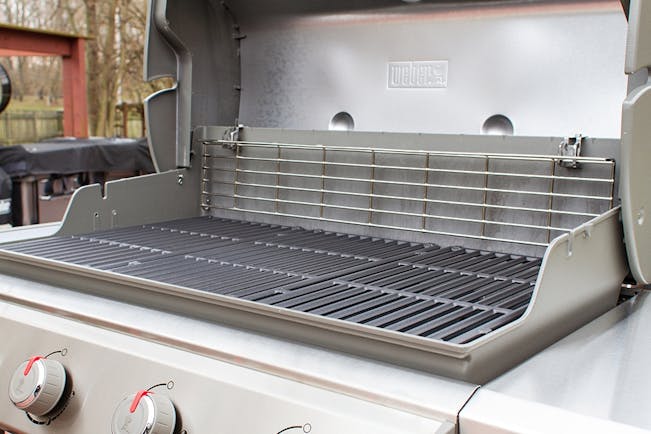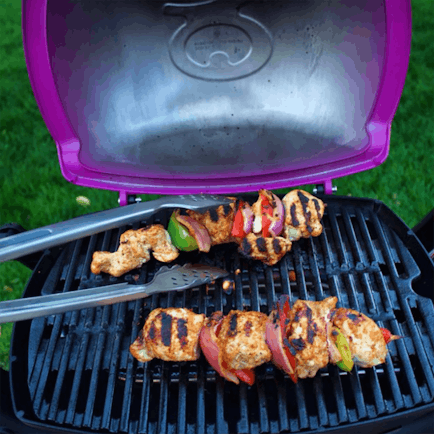How to Care For Your Cast Iron Cooking Grates
Having porcelain enameled cast iron grates means you get all the benefits of cast iron grilling without the upkeep of raw cast iron. Cast iron retains heat well, offering an extremely hot cooking surface. This is especially important if you’re looking for those professional grade sear marks, the true sign of any seasoned griller! Since these grates have a porcelain enamel coating on them they will never need to be seasoned. The coating is baked on during the manufacturing process at extremely high temperatures resulting in a very durable and non-stick cooking surface.
Different models come with different types of cooking grates and it’s important to know which ones came on your grill. All our 2017 gas grills except for the Summit and Genesis II LX come with porcelain enameled cast iron cooking grates.
Genesis II has very unique cooking grates. For the first time, on Genesis II models the cooking grates are reversible and you can grill on either side of the grate. The thinner side of the cooking grate is ideal for delicate foods such as fish, vegetables and shrimp. While the wider side creates thicker sear marks enhancing the flavor of your food for items like steak, chicken breast or pork chops.
To make sure your cooking grates last as long as possible, check out the tips below!
Care – When it comes to cooking grates, the maintenance is the same for Porcelain coated cast iron as it is for Stainless steel. Before each use, we recommend preheating your grill to 500-550°F, brushing your cooking grates clean with a stainless steel bristle brush and then adjusting your control knobs to your desired grilling temperature. It is not uncommon for food to stick more to new cooking grates. As you continue to use and clean your grates you will break them in reducing the amount of sticking.
Rust prevention – Make sure to clean your grates before each use. If you’re using a marinade, try to get as much liquid off as possible before placing the food on the grill and if using a BBQ sauce, wait until the last 5-10 minutes of grilling before applying it to your food. Using excessive marinade and applying BBQ sauce too early in the grilling process can result in the sugar burning causing a dark color and sometimes an off-putting taste. All that extra liquid is also going to mean that you’ll have to spend more time cleaning your grill. And let’s be honest, cleaning a grill is not on most people’s short list of things they’re excited about!
Tools to use – Weber offers a variety of grill brushes to clean your grates. They are all approved for use with our porcelain enameled cast iron grates. We don’t recommend anything with sharp edges as that can damage the porcelain enamel coating and open the door for corrosion issues. Make sure to test your brush for any loose bristles before each use and please keep in mind we recommend a new grill brush annually. You can check out our grill brushes on weber.com.
Cleaners – We have a line of cleaners made specifically for our grills. These make cleaning your grates a piece of cake!
If you’re ever in a grate debate you’ll now have enough knowledge on porcelain enameled cast iron cooking grates to impress any griller!



